Compassion and Moral Guidance (Monographs of the Society for by Steve Bein
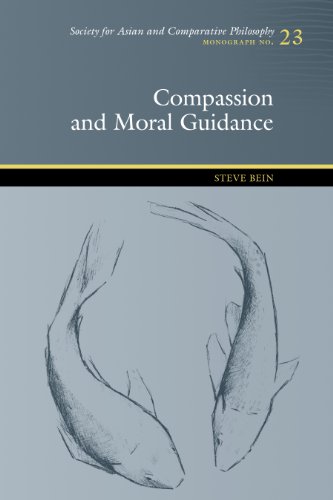
By Steve Bein
In Compassion and ethical Guidance, Steve Bein seeks to give an explanation for why compassion performs any such vast position within the ethical philosophies of East Asia and a mere one in these of Europe and the West. The publication opens with specific surveys of compassion’s place within the philosophical works of either traditions. The surveys culminate in an research of the conceptions of self and why the diversities among those conceptions serve both to have a good time or marginalize the significance of compassion.
Bein strikes directly to strengthen a version for the ethics of compassion, together with a bankruptcy on utilized ethics visible from the point of view of the ethics of compassion. the result's a brand new method of ethics, person who addresses the Rawlsian and Kantian situation for equity, the utilitarian drawback for passable effects, and the worry in care ethics for the correct remedy of marginalized teams. Bein argues that compassion’s means to handle all of those makes it a chief device for moral decision-making.
3 illus.
Man's Subtle Bodies and Centres, the Aura, the Solar Plexus, by Omraam Mikhael Aivanhov

By Omraam Mikhael Aivanhov
Implications of the Philosophy of Kant: Kāntdarśaner by Krishnachandra Bhattacharyya,J.N. Mohanty,Tara Chatterjea
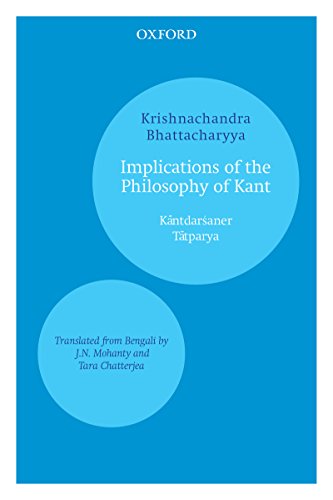
By Krishnachandra Bhattacharyya,J.N. Mohanty,Tara Chatterjea
Die Weisheit der Bhagavadgita (German Edition) by Sathya Sai Baba,Philippa Durst
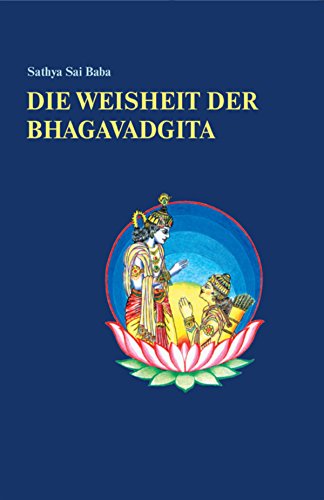
By Sathya Sai Baba,Philippa Durst
Im August und September 1984 hielt Sathya Sai Baba in seinem Aschram Prasanthi Nilayam in Südindien vor Studenten 34 Ansprachen auf Telugu über die Bhagavadgita. In diesen Ansprachen konzentrierte er sich auf zwei Kapitel der Gita: das zwölfte Kapitel, das den Weg der Hingabe betont, und das zweite Kapitel, das den Weg der Weisheit und des Handelns aufzeigt. Jede Ansprache baut auf den Aussagen der anderen auf und ist doch ein in sich abgeschlossenes Ganzes.
Al Drucker hat diese Ansprachen zusammengestellt und bearbeitet. Der Leser kann bei einer beliebigen Ansprache beginnen und wird durch das Praktizieren der Lehren erleben, wie sich eine erhöhte spirituelle Wahrnehmung in seinem Leben bemerkbar macht.
Zhuangzi: Basic Writings (Translations from the Asian by Burton Watson
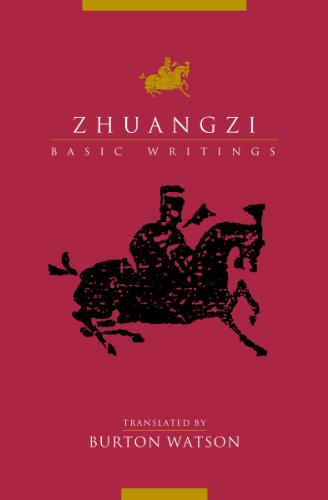
By Burton Watson
Elucidating a paranormal philosophy devoted to the non secular nourishment of the person, Zhuangzi makes many issues via humor. He additionally makes use of parable and anecdote, non sequitur or even nonsense, to jolt the reader into expertise of fact outdoors the light of normal good judgment. With encouraged, unconventional language and visionary rules, the Zhuangzi turns out to drift freed from the historic interval and society within which it was once written, addressing everyone throughout all ages.
Columbia offers this well known translation through Burton Watson of a seminal textual content in chinese language philosophy in pinyin romanization for the 1st time. search for new pinyin versions of 3 different vintage philosophical texts translated by way of Watson: Xunzi: easy Writings, Han Feizi: uncomplicated Writings, and Mozi: uncomplicated Writings.
L'empire du rite. La pensée politique d'Ogyû Sorai. Japon by Olivier Ansart
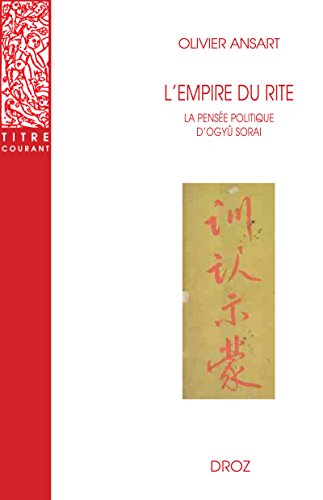
By Olivier Ansart
Le confucianiste japonais Ogyû Sorai (1666-1728) nous a laissé une des œuvres les plus remarquables de los angeles pensée politique en Extrême-Orient. Il nous raconte l'histoire de l. a. rupture entre les normes des hommes et le monde naturel, celle d'une balbutiante sociologie de los angeles connaissance. C'est également l'histoire du ceremony élaboré sur une belief des conventions langagières qui sera rejointe en bien des endroits par le pragmatisme anglo-saxon, l'herméneutique et l. a. philosophie analytique. De telles intuitions devraient donner à Ogyû Sorai sa position dans l'histoire mondiale des idées politiques.
BASIC BHAGAVAD-GITA: An Introduction to Bhagavat Vedanta by Sravaniya DiPecoraro
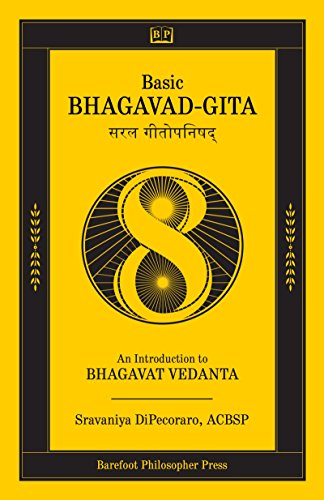
By Sravaniya DiPecoraro
This ebook bargains with complicated rules truly, provocatively and authoritatively. It succinctly illustrates a few of the similarities and alterations between significant philosophical faculties East and West. It grasps the typical thread working via them and gives the reader with keys for realizing the fundamental non secular teachings of yoga.
Filosofia perenne e mente naturale (Biblioteca) (Italian by Elémire Zolla,Grazia Marchianò
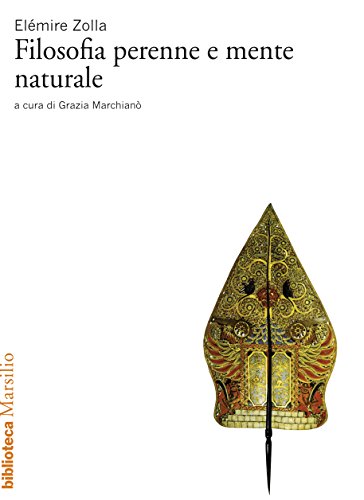
By Elémire Zolla,Grazia Marchianò
"Occorre rammentare che lo stato di liberazione può essere accostato in vasta o minima misura, finché vita perduri; un'esistenza volta advert essa sarà sempre sul punto di attingere lo scopo, anche se può darsi che fino all'ultimo respiro l'accesso sia in parte inibito" Elémire Zolla
Esoteric Principles: The Philosophy of Danzan-Ryu Jujutsu by George Arrington
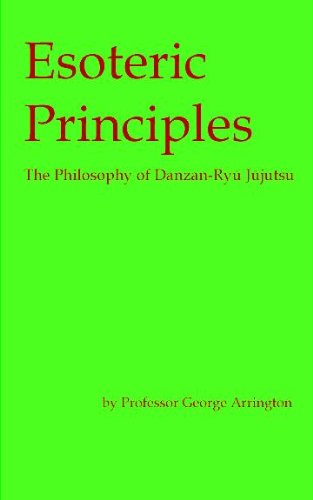
By George Arrington
Landscape and Travelling East and West: A Philosophical by Hans-Georg Moeller,Andrew Whitehead
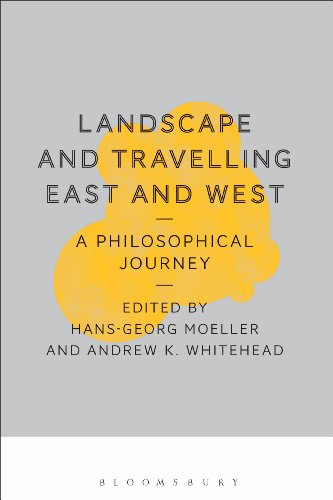
By Hans-Georg Moeller,Andrew Whitehead
Individual case reviews from esteemed specialists think of how philosophical thought of locations and trips have encouraged and formed significant highbrow and cultural traditions; how such notions concretely manifested themselves in chinese language artwork, rather within the genres of panorama portray and backyard structure. The reports current a philosophical discussion among Confucianism and Daoism on problems with social house and belonging and comprise dialogue on commute and panorama in Buddhism in addition to eastern and Tibetan contexts.
Approaching the subject from an inter-cultural views, relatively East Asian philosophies, and utilizing those to complement modern reflections on house, the surroundings, and traversing, this distinct assortment provides a huge voice to provide philosophical, political, and cultural discourses.